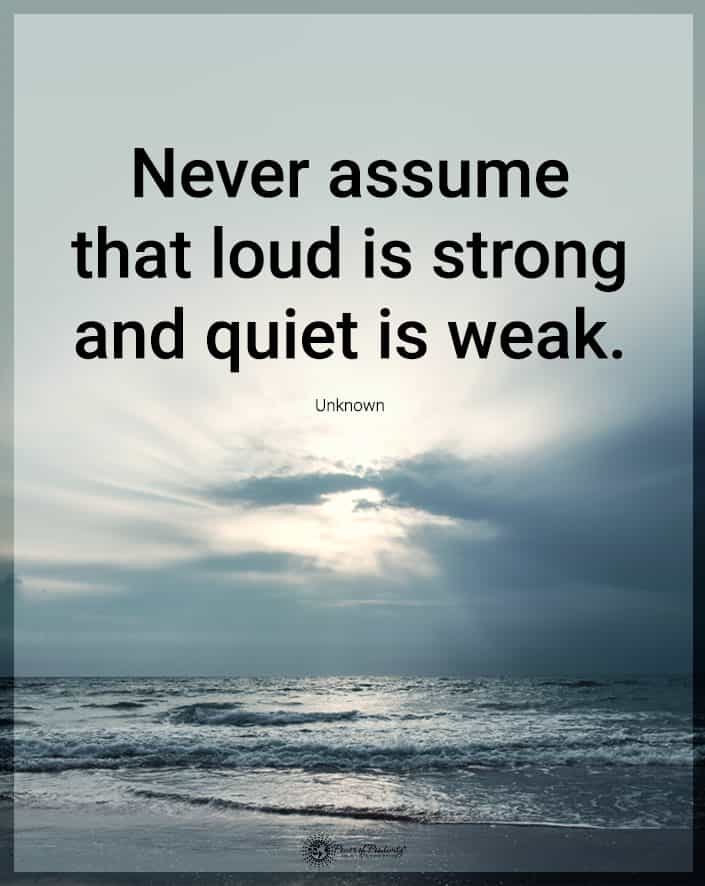Assertiveness means having the right balance between passivity and aggressiveness. If you’re asserting yourself, you’re able to speak your mind respectfully but firmly. Do you think you’re assertive enough? If not, here are effective ways to put assertiveness to work in your life.
What’s the difference between assertiveness and aggressiveness?
How do you know if you’re being aggressive or assertive? Here are some distinctions between these two attitudes.
| Assertiveness | Aggressiveness |
| Positive expression | Negative expression |
| Respect others | Ignoring others’ value |
| Value yourself | Disrespect others |
| Stand up for yourself | Hurts others |
| Non-threatening | Angry, impatient |
Thirteen ways to put assertiveness to work in life
Try these tips to being asserting yourself. You will become more self-confident.
 1 – Initiate conversation
1 – Initiate conversation
Being assertive means, you have the self-confidence to start or end a conversation with other people. You may start talking about something simple, but then you lead the discussion to more complex subjects. When someone wants to know your opinion about something, be sure to give them your honest answer. You don’t worry what people think about you because you’re confident in who you are.
2 – Assertiveness empowers you to make requests
If you’re an assertive person, you ask for things when you need them. You’re respectful but don’t come across as passive. Your tone and body language exhibit self-confidence. You stand straight, lean forward, and look the person in the eye when you make the request. What shouldn’t you do when you’re making a request?
- Apologize for asking
- Dismiss yourself saying, “It doesn’t matter.”
- Look down at your feet.
- You smile, but inside you’re struggling with fear.
Remember, there’s a difference between being assertive and being aggressive. Using “I” statements to avoid sounding aggressive. Use phrases with “I” messages, like the following:
- I feel
- I think
- I’m curious if
- I would like
Avoid aggressive phrases, such as:
- You always
- You’ll never
- You should
If you get aggressive when you’re making a request, people stop listening to you. They’ll feel alienated by you.
3 – Listen well
Asserting yourself means you’re an active listener. You listen to what people say by focusing on them and not what you want to say. You focus on them, which makes them feel you care about their opinions. The listening skills of an assertive person include:
- Not interrupting others
- Not quick to answer, you think first
- You ask questions to confirm you understand what they meant
- You affirm their ideas
- Doing the hard work to understand the other person’s point of view
- Allow differences in the way people think
- Listen respectfully
- Don’t feel insulted if someone doesn’t agree with you
4 – Problem solve by using assertiveness
If you want assertiveness to work in your life, strive to be a problem solver. Look for ways to compromise in situations. Remember, you can’t always get exactly what you want, but initiating a compromise is decisive action. You work to meet the needs of everyone involved without becoming aggressive or passive.
5 – Validate other people’s feelings
If you’re an assertive person, you are considerate of others. You show them validation by understanding and accepting them. When people feel validated, they think you have heard them and that you understand them. Here are statements you can make to validate others.
- I’m so happy to work with you.
- Thank you for…
- How are you feeling today?
- Help me better understand what you’re thinking.
- I don’t know what I’d do without you.
- What happened (versus what’s wrong.)
- It makes sense you feel that way.
- I wonder if you…
- I need your help.
- Thanks for being someone I can trust.
- I’m proud of you.
- Will you forgive me?
- You were right.
6 – Adopt a stance of assertiveness
You know that communication isn’t just verbal. It also includes your tone and body language. Gestures like your posture, eye contact, or hand movements all send a message to your listeners. An assertive posture is a relaxed stance. You may have your hands in your pocket. A strong stance makes you feel comfortable and confident. Researchers say that eye contact is part of your assertive stance. Staring at people shows aggression, but paying attention to others and what’s happening around you sends a powerful message of confidence.
 7 – Able to set boundaries
7 – Able to set boundaries
Assertiveness means you state your needs respectfully within personal boundaries. For instance, if your supervisor keeps piling work on your desk without asking if you can take on more work, at some point, you need to talk to them. You must have enough self-confidence to schedule a meeting with them to talk about a better communication system between the two of you. You may also bring up the need to delegate this extra work. Furthermore, you are setting boundaries so others don’t take advantage of you.
8 – Confidence
Even if you don’t feel confident, convey self-confidence by incorporating certain things into your life. Make a habit of doing these things to display you are optimistic.
- Smile-Smile at your co-workers, initiate a greeting like, “hello.”
- Walk confidently- Move with a spring in your step. Walk like you’re headed somewhere. Act busy.
- Dress with authority- Dress like you’re the boss. Choose clothes that express your personality but still look professional.
- Show others respect-Display respect for others with a self-confidence attitude.
An assertive person knows how to set boundaries for what they want and what they don’t want. Do a little self-exploring to figure out your opinions on things so that setting boundaries can become easier for you.
9 – Assertiveness empowers you to say “no”
If you’re prone to saying yes all the time, it means you need to grow in assertiveness. Instead of saying yes all the time, have some handy phrases available when people ask you to do something. Say things like:
- I’ll get back to you on that.
- I need to check my calendar before I can commit.
- I already have plans.
- No can do; I have something going on.
Remember, it’s okay to disagree. You can say something like, “This is a difficult situation, but I think I have another solution.” You are still saying no, but respectfully, that makes the other person feel you listened to them.
10 – Speak up
If you want to be more assertive in your life, speak up about your needs directly. Without diminishing others, stand up for yourself. Don’t assume people can read your mind, but you let others know what you need. If you’re assertive, people will respect you for your directness, especially if you are respectful in the way you explain your needs. Here’s an emphatic style you can adopt when you speak up. It should include:
- Sincerity with honesty
- Firm, respectful voice
- Eye contact
- “I” statements rather than “you” statements
11 – Emotional intelligence
Putting assertiveness to work in your life means you’re growing in emotional intelligence. This position means you can understand and control your own emotions, which helps you influence others’ emotions. To succeed in emotional intelligence, you should be.
- Thinking about your feelings
- Controlling your thinking
- Learning from what triggers intense emotions
- Show humility
- Demonstrate honesty
- Show empathy
- Act genuinely
12 – Calm under pressure by applying your assertiveness
If you’re an assertive person, you stay calm when things are difficult. Being overly excited in a situation may lead to aggressive behavior. So, express yourself in a confident, honest way without losing control. The people around you will pick up on your peaceful vibe and feel less anxious. If you need to make a quick decision, keep a calm mind, speech, and actions. This builds others’ trust and sets the tone for everyone.
How do you know if you’re assertive?
Are you an assertive person, or do you lean towards being aggressive? Are you passive and expect others to protect you? If you are actively powerful, you will do these things.
- Openly express your feelings and thoughts.
- Share your ideas
- Speak up about your needs and others’ needs
- Can’t be taken advantage of
If you’re weak in assertiveness, you’ll be
- Seen as supportive and a team player, but it could be at the expense of your own beliefs or thoughts.
- Over-reliant upon others to protect you
- Don’t share your opinions
- It gives a lot but feels like no one notices you or your ideas
 Final Thoughts: Assertiveness is a learned skill
Final Thoughts: Assertiveness is a learned skill
Researchers say assertiveness is a learned skill, not a personality trait. Learning to be assertive means stepping out into the uncomfortable territory of speaking up. The first step is to suggest a solution to a problem and express your feelings about the issues with “I” statements. Assertiveness is a more balanced approach instead of acquiescing or getting aggressive. It’s said that assertiveness allows you to say and do more things in your relationships that make them more prosperous and more meaningful.
The post 12 Ways to Put Assertiveness to Work in Life appeared first on Power of Positivity: Positive Thinking & Attitude.





 1 – Initiate conversation
1 – Initiate conversation 7 – Able to set boundaries
7 – Able to set boundaries Final Thoughts: Assertiveness is a learned skill
Final Thoughts: Assertiveness is a learned skill